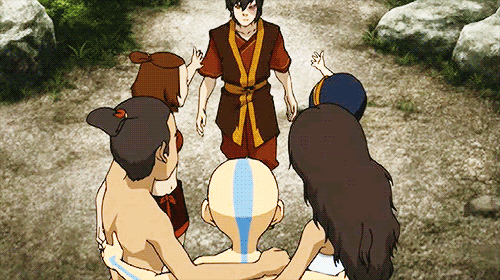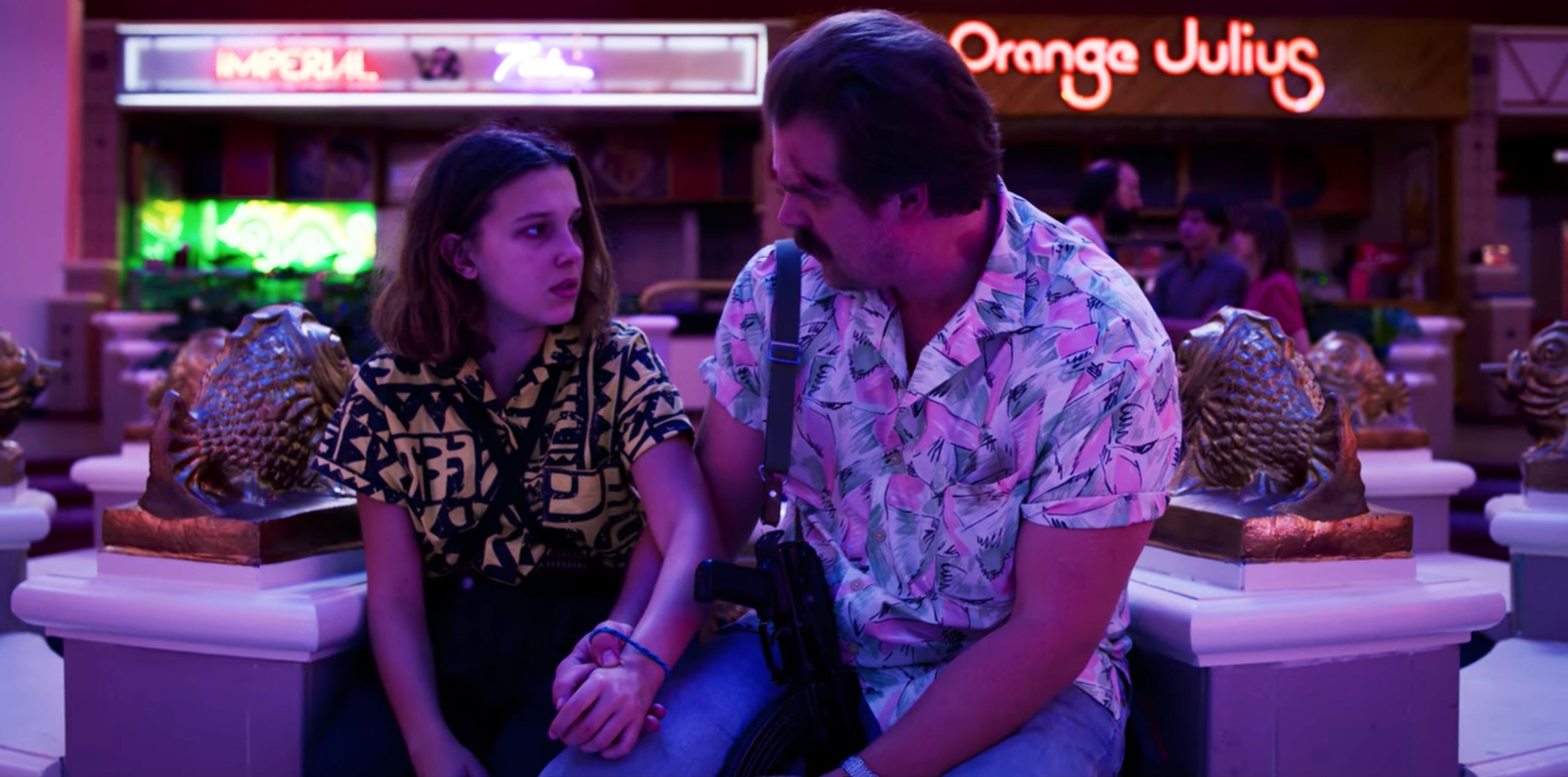We all have our favorite and least favorite tropes. From love triangles to slow burns, tropes are often the best ways to showcase great characters and storylines. They can also be frustrating and make you question why it is even a trope at all. In this bi-weekly column, we’ll take a deep dive into some of the most classic television tropes.
The other day I was browning through Twitter (as I normally do) and stumbled upon this tweet. The tweet featured screenshots from shows such as Shadow & Bone and Stranger Things as they were deemed great examples of the “found family” trope.
Until I saw this tweet, I didn’t realize how many television series featured this trope. Stranger Things (which is showcased in this tweet) is easily one of my top ten favorite shows of all time and is a prime example of this trope. In fact, I think a lot of the reasoning behind why I love the show has something to do with its reliance on a found family.
But before I dive into it, I guess I should figure out what exactly this trope is. If you look on Trope TV, they refer to it as “family of choice” and it is defined as when “a character who starts out conveniently an orphan [picks] up extremely loyal companions along the way.” With that definition in mind, it’s no wonder that shows such as Stranger Things and Shadow & Bone are provided as examples of this trope. Both of the main characters of this series (Alina and Eleven) are essentially orphans when the audience is introduced to them. Along the way, they meet people that become their family.
Going back to Stranger Things, the relationship I love the most in this series is the one between Eleven and Hopper. It’s no secret that both of these characters had a rough past couple of years. Eleven was essentially tortured by her “Papa” while Hopper lost his child to cancer. Watching these two lost souls find each other and discover how much they needed one another became one of the best storylines on Stranger Things. They went all-in on the “found family” trope and it paid off.
Honestly, there’s just something special about people finding each other through the shit show of life and realizing that they were meant to be together — that they’re family.
I guess that’s also why I loved The 100 so much. The show is filled head to toe in that trope. I honestly never put the pieces together until now but part of why I love The 100 is because of the relationships that are formed between the main characters and almost all of these relationships are found families. This is especially evident in the first season when a bunch of orphans are literally thrown to Earth and are forced to live with each other.

Everyone was at odds at the beginning of the show, but eventually, they grew to care deeply for one another. The relationship between Raven and Murphy is a great example of this. Their relationship essentially emulates that of a brother and sister dynamic. Both are continuously thrust into awful situations yet they prevail. And at the end of the day, they had each other to confide in (I’m talking a couple of seasons after Murphy shot her).
Perhaps Murphy and Raven isn’t the best example, but they are a piece of the greater The 100 family. They were very dysfunctional most of the time, but what family isn’t?
From Clarke finding Madi when she believed she was the last person on Earth to Octavia becoming part of Trikru, The 100 did a great job of showing viewers that your family doesn’t necessarily have to be blood.
A less toxic version of this trope that comes to mind is Outer Banks. When we meet John B., the protagonist of the series, his father is lost at sea and his mom is completely out of the picture. He’s basically on his own, holding onto hope that his dad will be found. As he figures out this new life without his father and as the mystery of his disappearance unravels, he’s able to turn to his group of friends aka “pogues” for support.
I suppose this is where this trope can become confusing — how do you distinguish a found family from just a solid group of friends? Well, the answer may not be that simple. Family sticks by you through thick and thin and provides you with the support you need to get through life. The way I see it is blood shouldn’t necessarily play a factor in this. If you’re able to find a support system, then hold on to them for dear life.

Avatar the Last Airbender is another great example of when you find people you care about, keep them around as it can help save the world.
Okay, saving the world might just be a bonus in this instance. Regardless, Avatar the Last Airbender features a group of kids that came together with the goal of saving the world. While that played a big part in why this group stuck together throughout the series, their growing bond also made it so they couldn’t imagine defeating the fire nation with anyone else.
Every one of them made a mistake throughout their journey yet they always managed to find their way back to one another. I particularly loved Zuko’s journey and how his relationships evolved between Aang and Katara. I know he has a sister and father, but his growth throughout the series is still worth noting. Overall, Avatar the Last Airbender features many iterations of this trope, each providing its own unique spin.
Speaking of different takes on this trope, I wanted to take the time to talk about a show that I don’t think gets nearly the amount of love it deserves. Army Wives was a good ol’ Lifetime original series that ran from 2007-2014. It focused on military spouses and how they lived their lives while their partners were off fighting a war or whatever they do. The reason I bring this show up is that I truly believe this is one of the best examples of finding a family outside of your bloodline.
For Pamala, Roxy, Denise, Roland, and Claudia Joy, all they know is the army. They’re really at the mercy of their spouses’ jobs, and in an instant, their lives could be uprooted. But despite the fear that they could be stationed somewhere else one day, these men and women continue to form and build relationships with other people on their base. In fact, it’s because of the disruption that these characters end up relying on one another.
From when Claudia Joy loses her daughter to when Chase and Pamela separate, it’s situations like these in which these characters demonstrate what family means. They truly are a family and no matter where they end up down the line, we know their bonds will last a lifetime.
Honestly, TV is filled with versions of this trope. Agents of S.H.I.E.L.D., Buffy the Vampire Slayer, and The Walking Dead are a few others that come to mind. Clearly, this is a trope that resonates with a lot of people so I hope I continue to see it in action.

